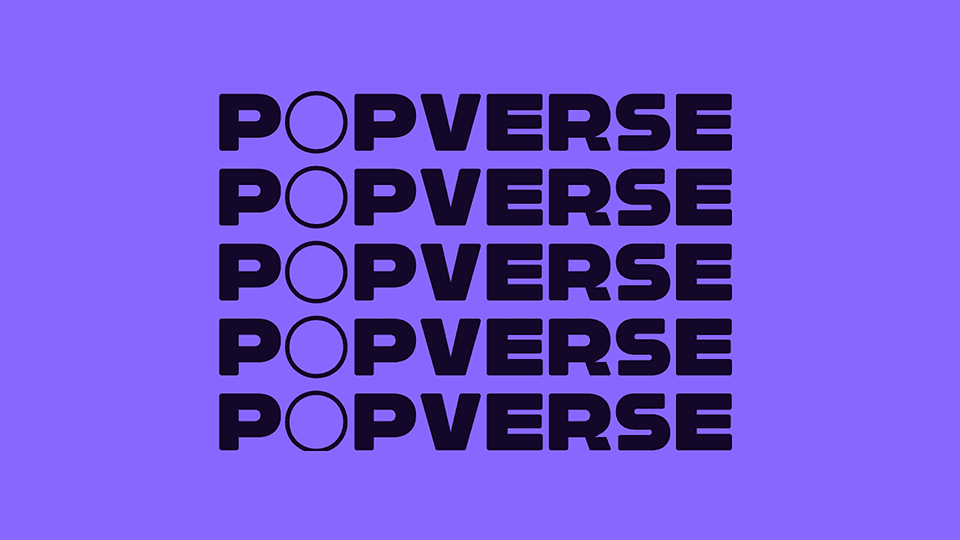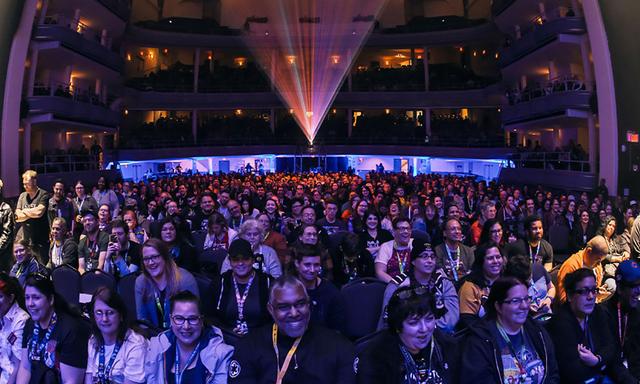If you click on a link and make a purchase we may receive a small commission. Read our editorial policy.
"It's a very particular process": Cartoonist Steenz Stewart chats newspaper comics, the Standard Comics Script, and Oni Press
Steenz Stewart on their cartooning schedule, drawing from life, and the Standard Comics Script

Steenz Stewart wears many different hats in the comics industry. They are best known for serving as the ongoing cartoonist behind the newspaper strip Heart of the City and as artist for the graphic novel Archival Quality. They've served as an editor at Lion Forge Comics as well as independently, and they've recently launched (alongside Camilla Zhang) the Standard Comics Script.
In this interview with Popverse, Steenz chats the complicated process behind creating a daily comic strip, creating the Standard Comics Script, and their thoughts about what's going on over at Oni Press
Popverse: One thing that really sounds out to me about your work, Steenz, is your use of colors. Specifically in Archival Quality, there's this seemingly layered effect. Can you talk about your process?

Steenz Stewart: I try and make it feel like my favorite time of day which is sunset and twilight. I do think about where it is, if it's indoors and it's outdoors, so on and so forth. But for the most part, I kind of want it to feel warm because the kind of stories I want to tell are cozy warm stories, so I want the art to reflect that.
Do you draw from life a lot?
I definitely draw from life a lot. I do most of my figure drawing from life, but lately I've been doing a lot of painting as well and really trying to get that color theory in a lot of different ways, because when you're working digitally you just work differently than when you work traditionally. Being able to do both, they each kind of help each other.
What kind of paint do you use?
I'm currently playing with gouache, which I had not grown up with or really explored until this year, maybe early last year, and I love it. It's like a great mix between watercolor and acrylic, and it just feels so versatile. I really like a versatile medium because I can play more with it.
Moving on to Heart of the City—this ongoing comic has an interlocking plot and it's a daily strip. How do you plot your stories out?
I actually organize all of my ideas by character, because I want to make sure that this stays an ensemble comic. Obviously, Heart is our main character, but I think about the cartoons like, Hey, Arnold and Recess, and those kinds of stories where it's all about that friendship and that friend group, that's what really, really matters to me.
I spend a lot of time making sure that they're each given enough focus and enough time to grow. All of the ideas, the random ideas I get throughout the week, the day, the year— I take those ideas, and I decide which one I want to flush out. I don't get too precious with it. I just write stream of consciousness and just get the whole story out. Then, once a whole story is there, that's when I start breaking it down into days.
I break it down to Monday, Tuesday, Wednesday, Thursday, Friday, Saturday, and then I have to think of a separate story for a Sunday because that's the nature of newspaper comics.

But once I have them broken out, it's a lot easier to figure out pacing because I know I only want to spend two weeks or maybe three weeks maximum on an arc. I always think about 'How long do I want us to focus on this' and 'How do I get it all into this amount of days?'
It's a very particular process.
Can you talk about the weird plotting between Sundays versus weekdays on the strip?
Newspapers get to choose what kind of comics they want. Do they want them in color? Do they want them in black and white? Do they only want the dailies? Do they want the Sundays? Do they want the Sundays with the title page? Because there's so many options, you have to be very flexible about how the story is portrayed. So, I always make sure that my Sundays are either tangentially related to what's going on in the dailies or something completely different.
If people only get the Sundays, I want them to get something out of it and not feel like 'This is a part of a bigger story I don't know.' Sometimes I'll write out all of my stories, because I do them at three months chunks, and sometimes I'll just skip Sundays. I'll write, 'Write this Steenz!' so that by the time I get to that, I'm like, 'Oh, I didn't think of anything for this Sunday, did I?'
Sometimes I have Sunday plans. Sometimes I have to think of them relatively on the fly.
How many of the strips do you do at a time?
I do two strips a day. So that's three days of dailies and then Sundays because they're bigger because they're in color and I actually do the coloring— I try and break that out to be a three-day process.
Beyond being a comics artist and a cartoonist, you also have worked as an editor. Pretty different hat. How do you approach comics differently in these different roles?
You know, it's interesting that you ask that because I always wonder what about my work brought my editor Tina to me. Like what made her think that I would be good for Heart of the City, and she actually told me, 'It's the fact that you're an editor, because daily comic strips are grueling.' She said that when you do a daily comic strip, you have to be organized and you have to be able to recognize when you want to put a certain priority on things.

Because I had done stories, like Rolled & Told which had 15 to 20 different artists per issue, I'm very good at being organized. That organization helps me with Heart of the City. It also helps me creatively because I work a lot with other collaborators—I'm working with Samuel Sattin on my new book Side Quest: A Graphic Novel History of Tabletop Role Playing Games.
And the way that I work with him is really great because we're both writing, and then I take an editorial eye to it before we send it to our editors, so it always feels really tight and clean before we send it off.
So yeah, I think being an editor is like really helpful for me creatively because I can find a way to step away from my own work and look at it objectively, as objectively as I can, before I send it off to the other editor.
Can you tell me about the Standard Comics Script?
The Standard Comics Script is something that me and Camila [Zhang] have wanted to do for a while because we are in a server that I run for BIPOC comic creators of marginalized genders. We always have weekly discussions, and one of the weekly discussions was 'What's something that you want to see in a script?' I found that a lot of artists said a lot of things that could very easily be implemented at an earlier level of the script.
So I was like, if we had a standard script, all those things that every one of these artists wants will already be in there. Why wouldn't I try and make that? I have background in editorial and marketing and art and in retail. I've been a part of the comics industry for over a decade. If anyone's got the chops to make that happen, it would be me.
I was like, you know what, I'm just gonna do it. I reached out to Camilla because Camilla is great with business with their background with working with Kickstarter and helping their unionizing effort.
We reached out to all corners of the industry to make this template. I mean, it was really a village that put it together. So even though we had to parse out what was a priority to keep in, what was something that we can make optional, it felt good because everyone that we spoke to really had a say in how we wanted this script to look.
It's very exciting to finally actually release it and see so many people saying, 'Thank you. Finally, I have something I can point to.' Because a lot of times when you ask someone, 'How do you write a comic book?' most people say, well, 'I write my scripts this way, and they write it that way, so we can do kind of a mix.' But I just need some basics, you know? Some building blocks.

We decided we wanted to make something that felt like a basic standard. It is for customization, and we even put that in the template, in the the key and the dialogue that says, 'Like everything, what everything is we even put in there like comic making is collaborative.' If your artist doesn't want something that's in this template? Get rid of it! Have that conversation.
Hopefully we get more people using it. I don't want to be something where it's like the end all be all, 'This is the only script you can use.' I just want it to be accessible. I just want anyone to be able to come in and write a comic and have the rest of the comic team know how to handle it instead of spending time deciphering someone's script.
Do you have any thoughts you'd like to share about what's happening at Oni right now?
I can't really say anything on the record as a past employee. As a creator though, I am feeling kind of annoyed, but I saw this coming. Oni Press has always been not great at the business aspect of the company. Even though they've been around for 25 years, they're basically flying by the seat of their pants the entire way, and to see them merge with another company with issues, I was like, 'This is not going to turn out well,' and here we are. It's sad to see because, I've seen the writing on the wall, and it makes me nervous as a creator because I really would love for Archival Quality to still be sold in schools and libraries and bookstores. And now, I feel like we creators want to put it in someone else's hands because if you lose the trust [in] your publisher, that's really the end of it.
For our last question, I'd like to ask you-- what are you a big fan of right now? Could be anything!
I've been drinking a lot of matcha lattes. Yeah. I just like feeling healthy, and I feel healthy when I have matcha [laughs].
It's not coffee, right?
Yeah!
I'm doing a lot of roller skating. I've definitely been trying to have a good work-life balance, and as a freelancer especially a freelancer that does comics, it can be very hard to have that balance. Being able to have a hobby like skating where I'm always excited to do it really forces me to just focus on my work so that I can close up shop for the day and go skating.
You are the third cartoonist in one of my interviews lately to mention a sport.
A lot of people don't realize this, but we as cartoonists have a lot of pressure on our shoulders, our back, our lower back. I have an occupational therapist because I want to be able to keep making comics for the rest of my life. And you have to take care of your body. So being able to have a hobby that is a sport and it's athletic— it's a boon.
Really you get the best of both worlds!
Thank you so much for chatting with us today, Steenz.
About C2E2 2022
Dates
-
Follow Popverse for upcoming event coverage and news
Find out how we conduct our review by reading our review policy
Let Popverse be your tour guide through the wilderness of pop culture
Sign in and let us help you find your new favorite thing.
















Comments
Want to join the discussion? Please activate your account first.
Visit Reedpop ID if you need to resend the confirmation email.